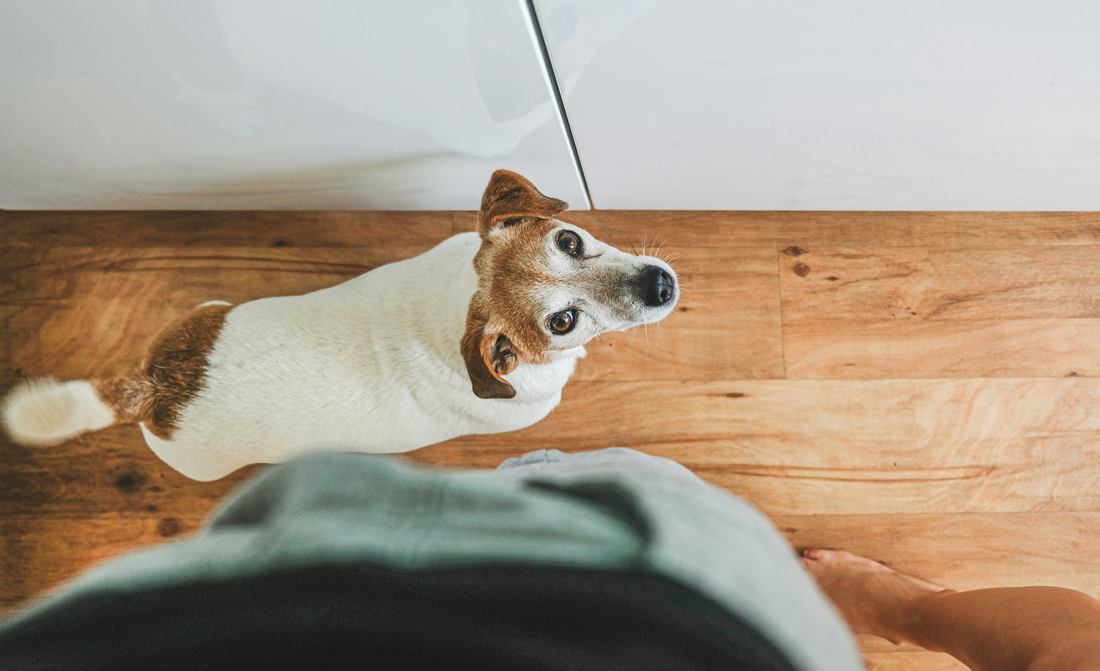
How to Help Your Pet Cope with Separation Anxiety
Share
Separation anxiety is a common issue for pets, particularly those who are very attached to their owners. When left alone, these pets may exhibit stress-related behaviors such as excessive barking, destructive chewing, or house soiling. Fortunately, there are effective strategies to help pets feel more comfortable when they’re home alone. In this guide, we’ll explore how you can help ease your pet’s separation anxiety and make their alone time less stressful.
1. Gradual Desensitization
Gradual desensitization is a highly effective technique to help pets with separation anxiety. This method involves slowly getting your pet accustomed to being alone for short periods and gradually increasing the amount of time they spend alone.
Start by leaving your pet alone for just a few minutes and then gradually extend the time as they become more comfortable. Be sure to leave quietly and without fanfare, so your pet doesn’t associate your departure with a stressful event.
If your pet struggles with grooming while you’re away, HugWith’s Pet Grooming Glove Wipes are a great way to give them a comforting cleanup once you’re home, helping to establish a calm routine.
2. Create a Safe and Comfortable Space
Providing your pet with a dedicated safe space while you’re away can help reduce anxiety. Choose a quiet, comfortable spot in your home where your pet feels secure. Include their favorite toys, blankets, or bedding to make the space feel familiar and comforting.
For some pets, a crate can provide a sense of security, acting as their “den.” If you use a crate, make sure to introduce it gradually and ensure it is associated with positive experiences, like treats and praise.
3. Practice Calm Departures and Arrivals
How you leave and return home can have a big impact on your pet’s anxiety levels. Try to make your departures as low-key as possible by avoiding long goodbyes or anxious energy. Similarly, when you return home, wait until your pet is calm before offering attention.
This will help your pet understand that your leaving and returning are normal, everyday occurrences, and not events to get worked up about.
4. Provide Mental Stimulation
Keeping your pet mentally stimulated while you’re away can help reduce anxiety and prevent destructive behaviors. Puzzle toys, treat-dispensing toys, or interactive games are great options for keeping your pet engaged during the day.
If your pet enjoys chewing, providing them with a safe chew toy can offer both physical and mental stimulation. You can also rotate your pet’s toys every few days to keep things fresh and interesting.
For a quick cleanup after playtime, HugWith’s Pet Grooming Glove Wipes are perfect for wiping down your pet and keeping them fresh between baths.
5. Use Calming Aids
Calming aids such as pheromone diffusers, sprays, or collars can help create a more soothing environment for pets with separation anxiety. These products mimic natural calming scents and can help your pet feel more relaxed when they’re left alone.
Additionally, some pets benefit from the use of calming music or white noise to mask outside sounds that may trigger anxiety.
6. Provide Plenty of Exercise
A well-exercised pet is less likely to feel anxious when left alone. Be sure to give your pet plenty of physical exercise before you leave, whether it’s a long walk, a play session, or some time spent running in the yard. For cats, interactive playtime with toys or laser pointers can help tire them out.
Exercising your pet helps burn off excess energy and reduces anxiety, making them more likely to relax while you’re away.
7. Consider Professional Help for Severe Anxiety
If your pet’s separation anxiety is severe and none of these strategies seem to help, it may be time to seek professional help. A veterinarian or animal behaviorist can work with you to develop a more personalized treatment plan, which may include behavior modification training or medication to manage anxiety.
For more expert advice on managing pet separation anxiety, check out these trusted resources:
- ASPCA: Separation Anxiety in Dogs
- American Veterinary Medical Association: Separation Anxiety
- PetMD: How to Help a Dog with Separation Anxiety
By following these strategies and creating a calm, comforting environment for your pet, you can help reduce their separation anxiety and make your time apart less stressful for both of you. With patience and consistency, your pet will learn that being alone isn’t something to fear.
